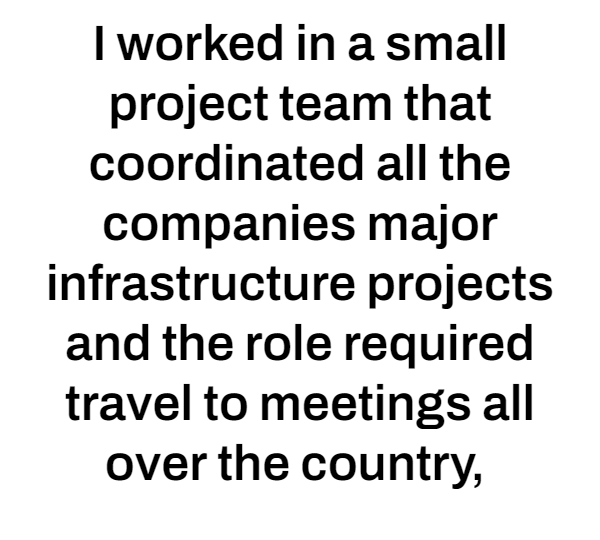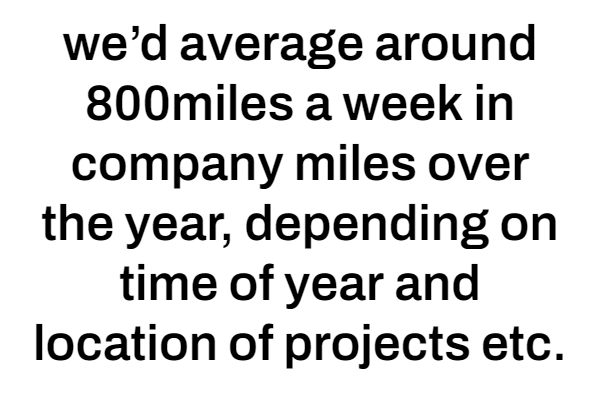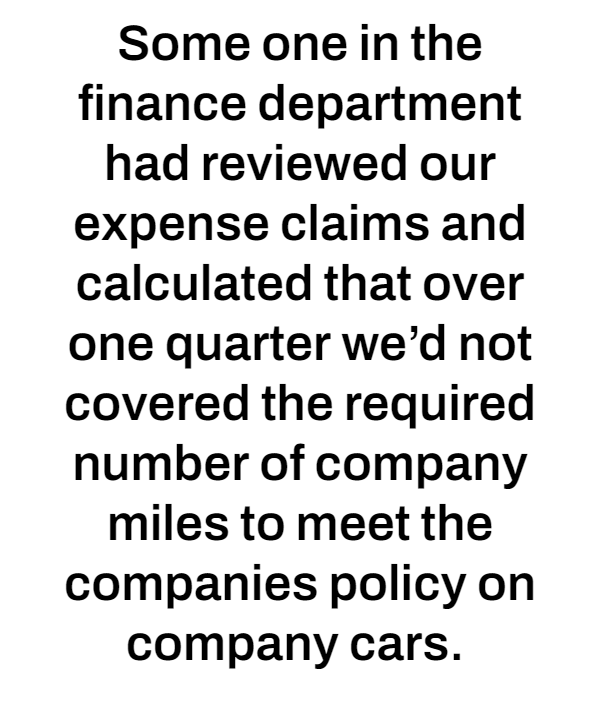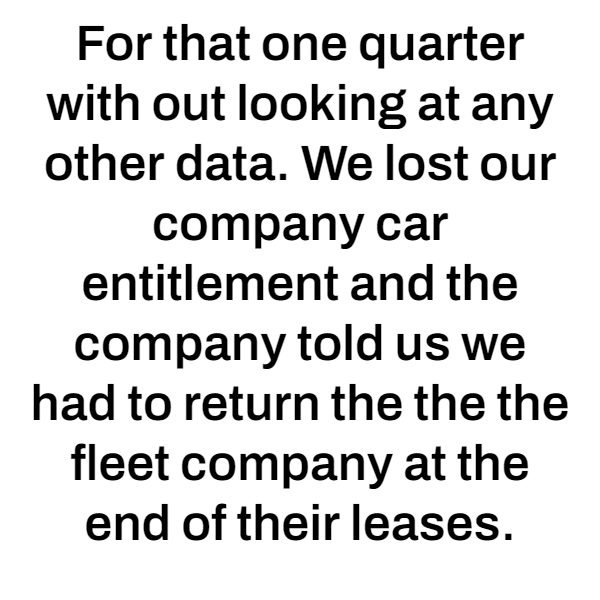Employees Turn Cost-Cutting Policy on Its Head with Expensive Malicious Compliance After Company Car Ban

Several years ago, an employee working for a UK-based power supply company experienced a significant shift in company policy that led to unintended financial consequences. The employee, part of a small project team responsible for major infrastructure projects, routinely traveled approximately 800 miles a week for work. Following a review of expense claims by the finance department, the company decided to revoke the team’s entitlement to company cars, citing a failure to meet the required mileage for the quarter.
The team, known for its expertise in adhering strictly to rules, decided to respond with what is known as malicious compliance. They had previously selected company cars that were cost-effective in terms of benefit-in-kind tax, making it a zero-cost benefit to themselves. With the removal of the cars and an increase in personal tax liabilities, the team sought alternative means of transportation. They began using hire cars and trains, which proved to be significantly more expensive.

Image credits: Thirdman (not the actual photo)
Additionally, the team exploited the company’s travel policy to the fullest. They limited their working hours to the mandated 7.5 hours per day, booked hotels for overnight stays, and utilized the £25 per day food allowance, thus maximizing their travel-related expenses. This change in approach resulted in a dramatic rise in expense claims, surpassing the total costs incurred over the previous 12 months.
After about eight weeks, management noticed the substantial increase in expenses and called the team to discuss the situation. The team’s line manager confirmed that the expenses adhered to company policy, while the department manager suggested reinstating the company cars. The team declined the offer and chose to continue following the travel policy strictly.
This scenario underscores a common outcome where cost-cutting measures, such as removing company cars, can inadvertently lead to higher expenses due to employees’ strategic compliance with the company’s policies.
Read for more info Reddit




Image credits: cottonbro studio (not the actual photo)




